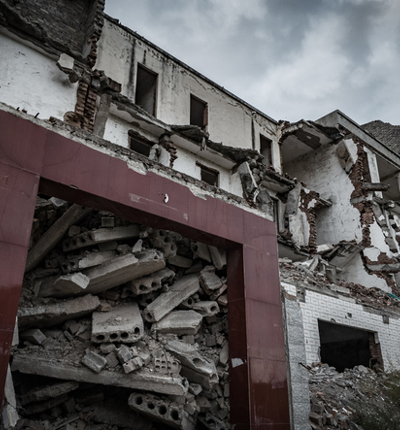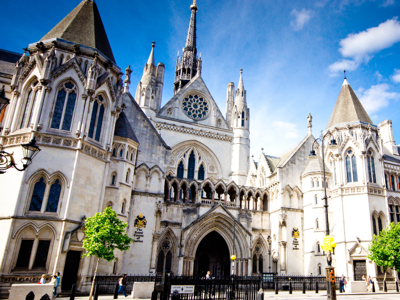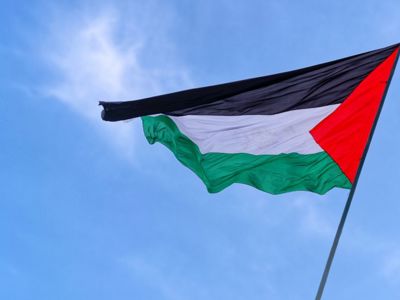
UK government faces legal challenge over position not to evacuate critically ill children from Gaza
A legal challenge is being launched against the UK government on behalf of critically ill children from Gaza who require urgent medical attention, claiming it has failed to consider the situation on the ground in Gaza when turning down calls for the medical evacuation of Gazans requiring treatment to the UK.
Posted on 19 July 2025
The pre-action letter on behalf of the children, who we are calling child Y, S and S, argues that the UK government has failed to take reasonable steps to ensure it is sufficiently informed and has taken account of the inadequate treatment options for Gazan children before deciding not to pursue medical evacuations.
It argues that privately funded evacuation and medical care in the UK, which is the only existing potential option for critically ill Gazan children, is not realistically available to children Y, S and S.
It is also argued in the pre-action letter that the UK Government’s failure to facilitate medical evacuations from Gaza, stands in contrast to its history of facilitating medical evacuations during conflict, including steps it has taken in other recent conflicts and the approach taken by other countries.
This includes actions taken by the UK Government in March 2022 when 21 Ukrainian children with cancers were medically evacuated for treatment in the UK following Russia’s invasion of Ukraine. Only two people have been medically evacuated from Gaza, and these have been privately funded.
A number of other countries, including European Union (EU) countries, Ireland and the USA have also facilitated medical evacuations from Gaza. EU countries have collectively facilitated medical evacuations of over 200 patients to date, but the children and their families say in their legal letter there remains a desperate need for further evacuations. Children Y, S and S and their families are asking the UK government to play its part and reconsider its position on evacuating seriously ill and injured children from Gaza for treatment in the UK.
The families of the three children say the severe impact of the ongoing war in Gaza on healthcare systems in the region and the difficulties accessing treatment support their argument that the UK should be medically evacuating them. They are challenging the UK government over its position not to facilitate medical evacuations and claim the government’s position fails to take into account the inadequacy of the existing treatment options for Gazan children like Y, S and S.
Child Y is two years old and has what is believed to be a serious condition, called an arteriovenous malformation, in his cheek where blood vessels are tangled, causing daily bleeding and anaemia (a lack of healthy red blood cells). Doctors assessing child Y have advised that he needs a biopsy to accurately diagnose his condition and to start treatment.
There are concerns that child Y could instead have a tumour, and medical professionals assessing him believe that it could grow and become inoperable if medical evacuation does not take place soon.
Child Y’s family and medical professionals say that he has not been able to access the medical tests and diagnosis or the treatment he needs in Gaza and that it has not been possible to properly stabilise his condition, which puts him at constant risk of a catastrophic bleed.
Child S and child S are five-year-old siblings who have been diagnosed with cystinosis nephropathy – a chronic condition known as leaky kidney that impacts kidney function. The treatment for cystinosis nephropathy requires medication that is currently not available in Gaza and their deteriorating condition means they need more tests to determine what further treatment they require.
Without access to specific medication and treatment, their parents and medical professionals fear that the siblings’ condition will continue to rapidly deteriorate and could lead to chronic kidney disease and organ failure. Reports indicate that those in Gaza who suffer from kidney conditions or failure are unable to access suitable, consistent treatment, as dialysis equipment and trained staff were already limited before the war, and are now destroyed or overwhelmed.
The children are supported by Children Not Numbers, a UK charity and Not for Profit NGO, which has been working to facilitate access to medical treatment in Gaza and, where required, the evacuation for children abroad from Gaza.
The three children and their families say that there is an urgent need for their medical evacuations, proper diagnosis and treatment abroad, without which, they – and many others in their position – will continue to deteriorate and face serious harm and potential death.
Children Not Numbers argues that without medical evacuation and proper diagnosis and treatment abroad the chances of recovery and survival decreases for the likes of child Y, S, and S as time passes. The organisation says that 60 of the children it has been supporting have died from otherwise treatable conditions while waiting for medical evacuation from Gaza and several others have died very shortly after medical evacuation having waited too long for treatment abroad.
Child Y, S, and S are represented by Carolin Ott and Tessa Gregory of Leigh Day and Raza Husain KC and Eleanor Mitchell of Matrix Chambers.
Carolin Ott said:
“It is reported that the UK government has explained its failure to facilitate medical evacuations from Gaza on the basis that it supports treatment options in Gaza and the surrounding region and that there are visas available for privately funded medical treatment in the UK. However, these mechanisms are profoundly inadequate to meet the urgent needs of children in Gaza.
“Without the option of evacuation to the UK, many Gazan children – including Y, S and S – will continue to face serious harm and possibly death due to the unavailability of the treatment they desperately need. In the past, UK Governments have rightly recognised that during armed conflict medical evacuations, particularly for children, are sometimes necessary and has facilitated them. In the face of the incredibly desperate situation on the ground in Gaza, our clients feel that the time has come for this UK Government to step up.”
Solicitor in Children Not Numbers’ legal team, Kate Takes, said:
“Children Y, S and S are seriously ill and deteriorating because they’ve been without proper medical treatment for so long. They, like so many children in Gaza, cannot get the treatment they urgently need due to the dismantling and destruction of the healthcare system.
“Our international and on-the-ground medics work tirelessly to think of ways to provide some form of treatment and stabilise the children we support but, without the necessary resources, expertise, and nutrition there are significant limits to what can be done. In these two cases, our medical teams involved with the children’s treatment and care are extremely worried about their prognosis, which deteriorates every day that they are unable to obtain the treatment they need.
“Without treatment they will not survive, they need to be evacuated from Gaza urgently. The region is under significant pressure to treat and support the thousands of medical evacuees that have been received since October 7th.
“We believe that all children deserve the universally recognised right of healthcare. Children Y, S and S and so many others urgently require medical treatment, which the UK can provide with its world class paediatric medical facilities. France, Spain, Italy, Greece, Romania, Ireland, Belgium, Germany have all taken sick and injured children from Gaza with treatment and support being provided at government expense.
“We hope that the previous compassion shown by the UK towards innocent children affected by armed conflicts, most notably those coming from Ukraine, is one that will continue in relation to the humanitarian crisis the children of Gaza are experiencing.”
Related Content

Oxfam wins permission to formally intervene in legal challenge to UK arms sales to Israel
Oxfam has been given permission to formally intervene in a legal challenge to the Government’s continuing approval of arms sales to Israel.

The Refugee Convention and the Inaccessibility of Protection for Palestinians in Gaza
As we mark Refugee Week, Nath Gbikpi reflects on the principles of protection enshrined in the 1951 Refugee Convention and on the significant gaps between those principles and the lived realities of many refugees around the world.


